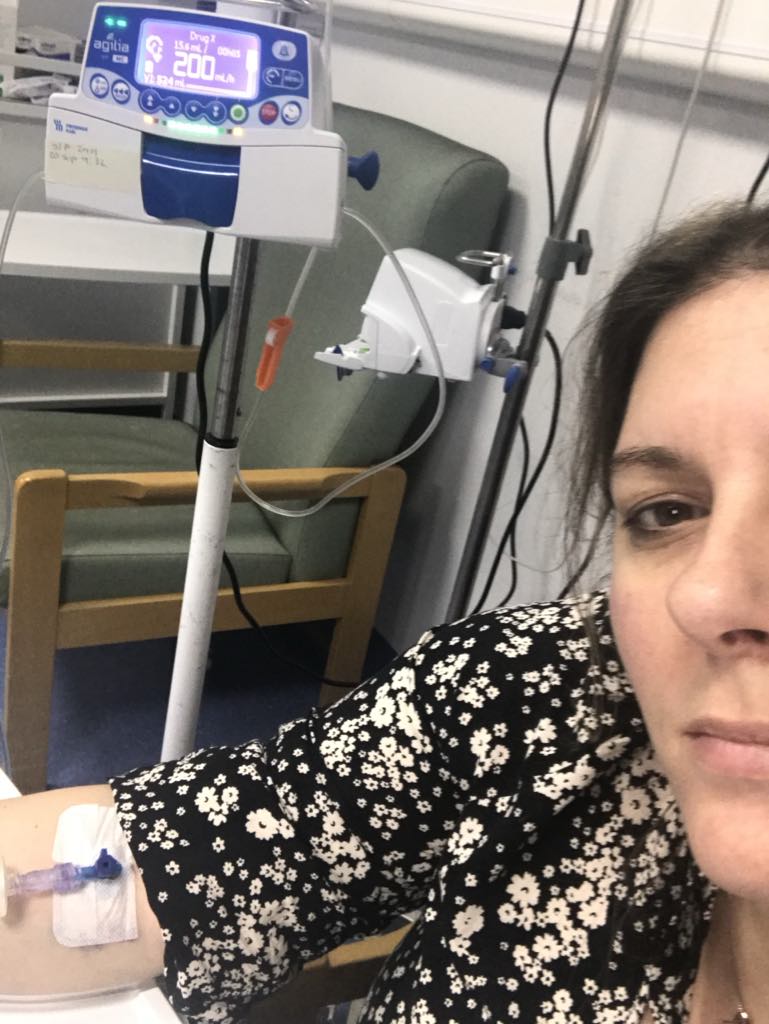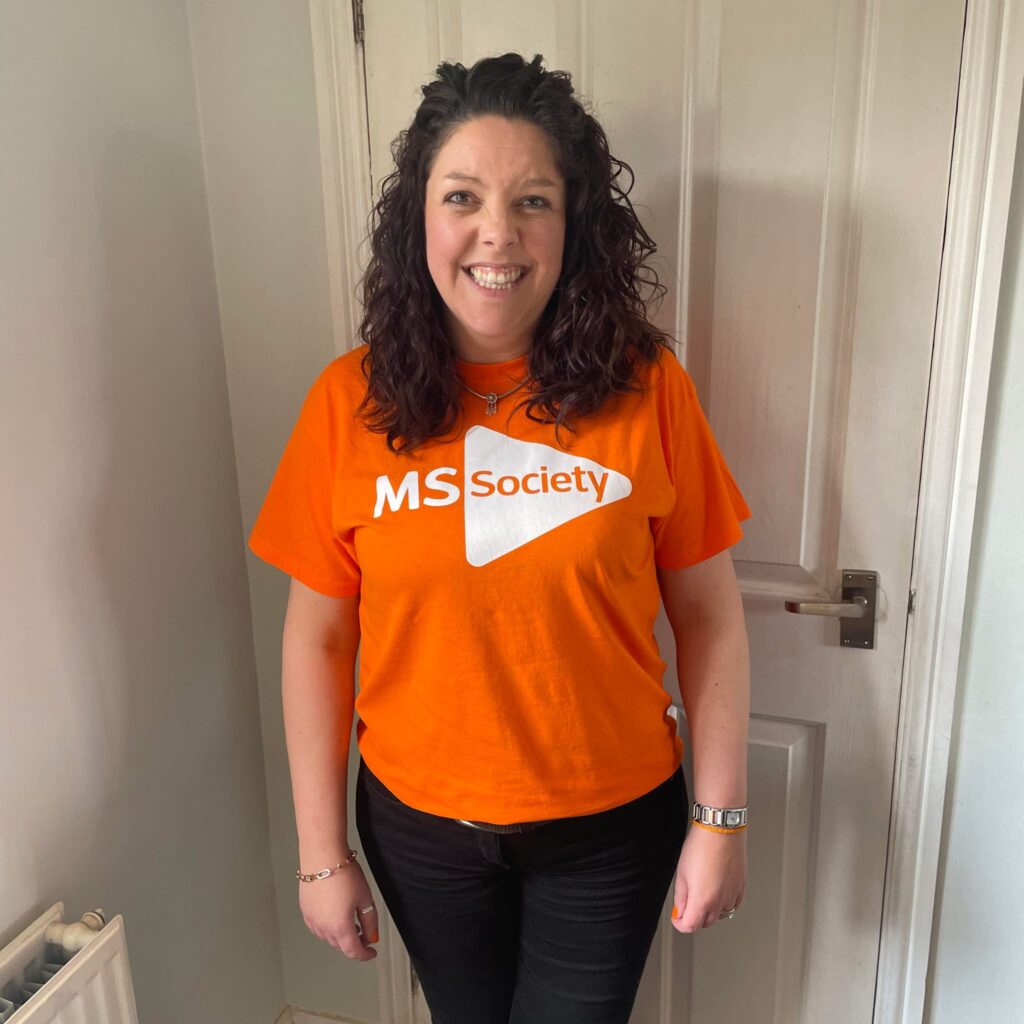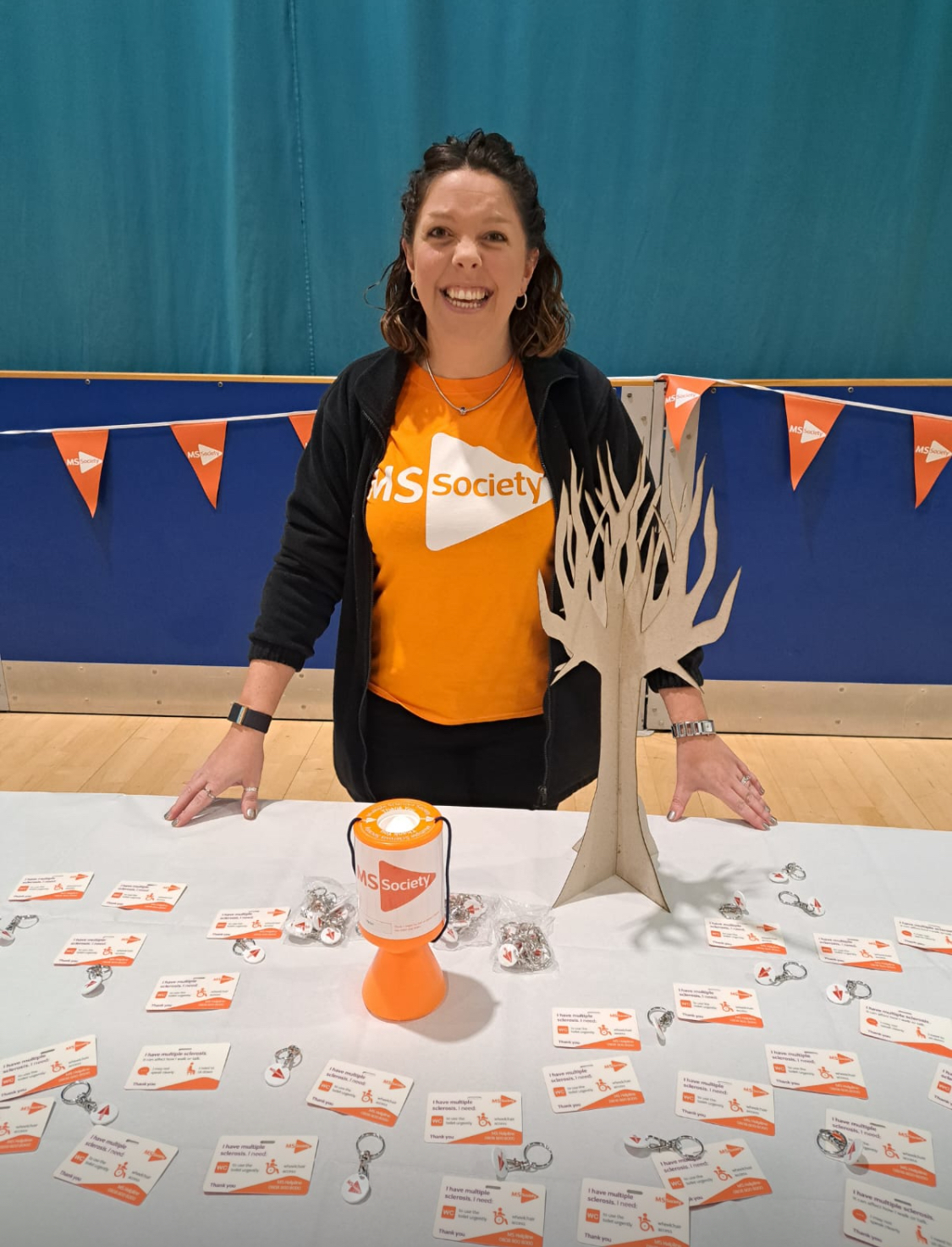Walking across a car park may not feel like a huge task, but for Susie Evans the simple trip, which most people don’t give a second thought to, can leave her exhausted.
“Some days are harder than others, putting one foot in front of the other takes a lot of concentration and energy meaning that I can be wiped out for the rest of the day,” says Susie.
The mum-of-one was diagnosed with multiple sclerosis (MS) when she was 38-years-old, in 2018, after a couple of years of struggling with neuropathic pains to her left leg, and exhaustion.

This week as part of MS Awareness Week 2025, Susie is talking out about the condition and how it affects her everyday life.
MS is a neurological condition that one in every 450 people in England will be diagnosed with in their lifetime.
Susie, 45, a civil servant from Chapeltown, Sheffield wants people to understand how difficult daily life is for people living with MS.
“There’s this thing called ‘spoon theory’,” she says. “The premise is that anybody with a chronic disease might wake up in the morning and have 12 spoons of energy for that day. And then getting dressed might take a spoon, getting showered might take a spoon. Then getting to work might take two spoons and quickly, spoons disappear. If you get up in the morning and you’ve had a really bad night’s sleep, because one of the joys of MS is sleep disturbance, you might wake up and instead of having 12 spoons that day you’ve got eight. Then if you’ve got a cold, you can take another couple of spoons out of your day. So suddenly you might have only six spoons of energy for that day.”
Susie was diagnosed with MS seven years ago. Her particular condition, relapse remitting MS, means she can get worse periods of intense symptoms and then they lessen or stop.
“My first symptom was numbness in my big toe, which spread over a few days all over my left side,” says Susie, who has been left with scarring on her brain. “To touch it was like having an electric shock.”
Susie went to see her GP, who made a call to a neurologist at the Hallamshire Hospital and asked them to see her that day.
“They did an MRI scan that showed a lesion on my spinal cord and I was diagnosed with Clinically Isolated Syndrome (CIS) and told that it could progress to MS,” says Susie.
She was sent for a follow-up MRI after a period of difficulty walking, which felt like Susie ‘was wading through treacle and was exhausting’ showed further lesions on Susie’s brain. It was at this point she was diagnosed with MS.
Although it didn’t come as a shock, ‘it was still unpleasant to get that diagnosis,” says Susie.
She explained living with MS is unpredictable and Susie constantly suffers from a varying range of fatigue.
“There’ll be days where it gets worse,” she says. “I also have cognitive issues so I can get confused and tired. But I’m a mum, so I have to function. It’s exhausting and the unpredictability is frustrating.”

Susie uses a TurboMed, a specialist brace, to help her manage the impact MS has had on her mobility. She also has an electronic stimulator which sends messages to her muscles when she is walking to help her lift her foot.
“It can be a bit complicated to try and get dressed in the morning.” She says.
Susie, who works from home, praised her employers for how supportive they have been, allowing her to dictate her own travel arrangements or any breaks she needs.
“I’m also in an MS support group at work,” she says. “It’s a really supportive group, full of people who have MS and for people who care for people with the condition too. When it’s a really hard day and you can’t function, they can help with advice. They also help with things like applying for benefits. I’m glad it exists.”
Susie says her MS nurses have been invaluable. They encouraged her to apply for a blue badge to help Susie conserve her energy and to start cognitive behavioural therapy (CBT) to help her come to terms with her condition.
“Even though I’ve had MS for seven years, it’s still a learning curve,” she says. “I’m still learning to pace myself in terms of what I can do and what I can’t do. I kick myself if I do too much. It’s an acceptance thing. The acceptance that I have is that I know I’ve got it [MS] and I’m not ok about it.
“You often get comments from people like “But you look ok”. I might look ok. But it could be ten o’clock in the morning and if you see me at three o’clock it might be a different story.”
MS Society announced in February that they had reached the threshold for 200 people to take part in the ChariotMS trial for advanced progressive MS. The study hopes to find whether cladribine can help people with more advanced MS to use their arms and hands. The first results of this study are expected in 2027.
Also, later this year results are expected for the myelin repair trial. Myelin is the protective coating around nerve fibres which is damaged in MS and lab research so far has shown a combination of two drugs helped myelin repair in rats.

Another MS sufferer, Joanna Mason, 43, from Rotherham, is a social media influencer, with 103,000 followers on TikTok, under the name ‘The Yorkshire Wife’. She is also a comedian and a volunteer group coordinator for the MS Society Sheffield and Rotherham group.
As well as MS, Joanna has functional neurological disorder (FND), causing a range of debilitating symptoms. They include fatigue, vertigo, tinnitus, facial spasms, short-circuiting (FND physical and vocal tics), dysphonia (when the voice involuntarily sounds raspy, strained or changes in volume or pitch), swallowing problems, tremors and difficulty controlling body temperature.
“Some of my symptoms are permanent due to the damage in my brain and spine and then some come and go,” says Joanna. “Everyday can be different with MS and sometimes hour to hour is different. You never know what you’re going to be able to do and when.”
Joanna has been volunteering with the MS Society since she was diagnosed in 2021.
“We have three volunteers and between us we have set up two seated exercise classes which run weekly in Rotherham and Sheffield and a weekly gym-based circuit training session,” says Joanna. “We have specialist trainers from CWS Community Wellness Services that run our sessions.
“The sessions help us with functional physical exercises, strength training and building new neural pathways. We also run a monthly social group at the MS Therapy Centre in Catcliffe where we have guest speakers and workshops all with the aim of learning to live as well as we can with our MS. We don’t want anyone to feel alone.”
Joanna explained MS often gets referred to as the ‘snowflake disease’ as every individual with MS experiences it differently and there are so many factors that can cause symptoms to flare.
The MS Society support groups constantly receive positive feedback. “I’ve created friends for life through the group,” says Joanna. “We support each other through the ups and downs of our illness.”
Joanna said MS Awareness Week,which runs from Monday 28 April to Sunday 4 May, with the aim of encouraging people to join in the online dialogue using the hashtag #MSConversations to share their personal stories about MS, is important because it’s vital other people understand what life is like for people with MS.
She says: “We only have medications that aim to slow down progression or help manage symptoms. We need a cure.”
To anyone who’s recently been diagnosed with MS Joanna says: “MS might be affecting you from the inside out but there are so many things you can do from the outside in to help you live as well as you can. Reach out to support groups and ask questions.”
You can find out more information about the MS Society Sheffield and Rotherham group and contact them through their Facebook and website. You can also contact the MS Trust helpline and MS UK.
Error: No feed found.
Please go to the Instagram Feed settings page to create a feed.
Error: No feed found.
Please go to the Instagram Feed settings page to create a feed.




